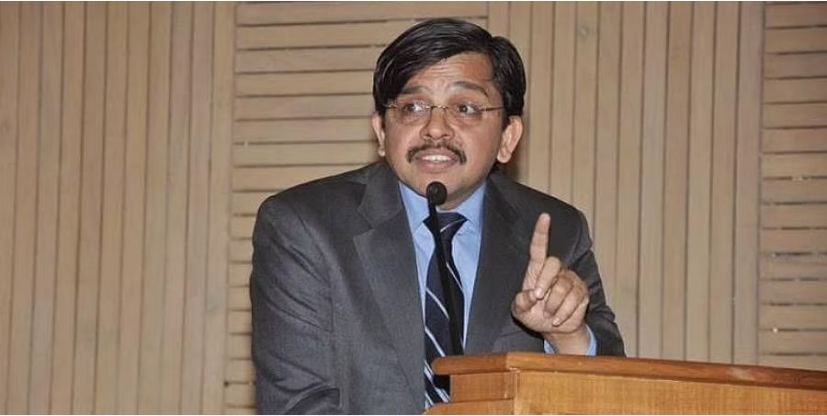Orissa High Court Chief Justice S Muralidhar has said that India’s legal system is structured in such a way that it promotes discrimination and works unequally for the poor and the rich. Speaking at the Ambedkar Jayanti lecture organised by the Community for the Eradication of Discrimination in Education and Employment on April 14, Justice Muralidhar said that laws are structured to discriminate against the poor and favour the rich. “There are many barriers to accessing justice that a marginalised person faces,” Justice Muralidhar said. “The system works differently for the poor. The laws and processes are mystifying even for an educated literate person. The laws are themselves structured to discriminate against the poor,” Justice Muralidhar said. “Muslims and people from the Scheduled Castes and OBC communities formed the majority of those facing trials and convicted in the country,” he pointed out.
Justice Muralidhar said that 21% of the undertrial population of 3.72 lakh in India and 21% of the convict population of 1.13 lakh belong to the Scheduled Castes. Similarly, 37.1% of convicts and 34.3% of the undertrials belong to the OBCs. The corresponding percentage for Muslims is 17.4% and 19.5%, respectively. He added that many people who are under trial continue to remain in jail despite being granted bail because of their inability to arrange surety bonds. Justice Muralidhar also expressed concern over the quality of legal aid in the country for those unable to afford legal representation.
“The lack of confidence in the legal-aid lawyer is a reflection of the general approach to welfare services by the providers,” the judge said. “I call it the ration shop syndrome. The poor believe that if you get any service for free or it is substantially subsidised, then you cannot demand quality. The system works differently for the poor. The beggars’ courts, the Juvenile Justice Boards and the Mahila Magistrate courts are the first point of encounter for the poor with the legal system,” he said, adding that if lawyers belong to Dalit and Adivasi communities, they run the risk of being labelled as Maoist or Naxalite lawyers.
Also Read: Calcutta High Court dismisses PIL challenging ad for recruitment of professors
Emphasising that the Constitution acknowledges persons who by birth, descent, caste and class have been denied justice over generations, Justice Muralidhar said it also asked the State to come up with affirmative action to redress such historic injustices. “These include those belonging to the SC, ST, Dalits, Adivasis, socially and educationally disadvantaged classes, economically deprived classes and a whole host of others, including religious and sexual minorities, differently abled and children in conflict with the law,” he said, adding, “Then there are status offenders—sex workers, mentally ill and many others whose very existence and every activity is criminalised and, therefore, very often find themselves on the wrong side of the law. Thus, begging, street dwelling, and prostitution are all treated as law and order problems. It is a matter of concern that in at least 20 states in India, there are still anti-beggary laws. Only in Delhi and J&K have these laws been struck down by judicial verdicts. Then, there are de-notified tribes who have for long been the victim of police atrocities. Those coming in conflict with the law in these situations are invariably those below the poverty line and high-risk groups for whom legal aid is an absolute necessity.”
Recently, a Supreme Court bench of Justices DY Chandrachud and BV Nagarathna noted that several members of the SC/ST community “face insurmountable hurdles in accessing justice from the stage of filing the complaint to the conclusion of the trial” and that they “specifically suffer on account of procedural lapses in the criminal justice system”. The bench said that due to the fear of retribution from members of upper caste groups, ignorance, or police apathy, many SC/ST victims do not register complaints in the first place, and even if they do, “the victims and witnesses are vulnerable to intimidation, violence, and social and economic boycott”. The bench noted that “This results in low conviction rates under the SC/ST Act, giving rise to the erroneous perception that cases registered under the Act are false and that it is being misused. On the contrary, the reality is that many acquittals are a result of improper investigation and prosecution of crime, leading to insufficient evidence.”
Justice Muralidhar went further, stating that structures that marginalise a sizeable section of the population are yet to be dismantled and asserted that this is why we still have amongst us those engaged in manual scavenging, sewer cleaning or forced labour doing all our dirty work “at the cost of their dignity and right to life”. He added that the marginalised largely view the legal system as irrelevant and as a tool of empowerment and survival. “Their experience tells them that it operates to oppress them and they have to devise ways to avoid it rather than engage with it. We need to revive discussions around decriminalising many of the surviving activities of the poor,” he said.
The statistics put out by the NCRB on the conviction rates in SC/ST cases bear out these remarks. In 2020, the pendency of trials of offences under the SC/ST Act was 96.5%. Only 216 cases from the 50,291 crimes against the SCs in 2020 resulted in convictions and 3,192 cases resulted in acquittals. Today, there are many civil society groups that have for many years been working with the marginalised. There are also paralegal workers that help them through their interventions. The system needs all of them for its legitimacy. The marginalised need them for their survival.
—By Abhilash Singh and India Legal Bureau


